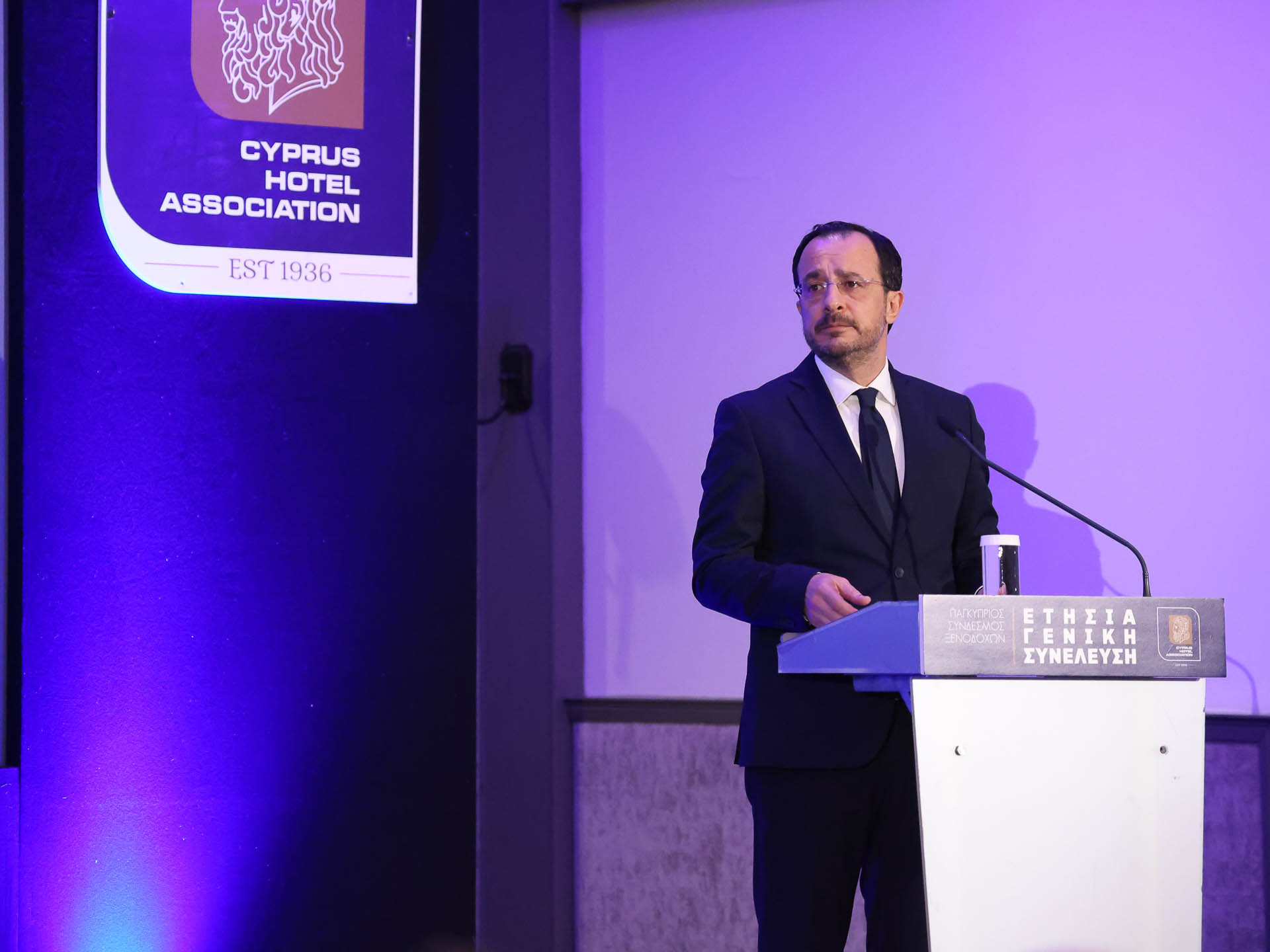The tourism industry is resilient enough to recover from crises in the Middle East and Ukraine in addition to a recession in Europe, President Nikos Christodoulides said on Tuesday unveiling an extra €10 million to promote the island overseas.
He made the comments in an address to the AGM of the Cyprus Hoteliers Association (Pasyxe), saying the extra money would be included in the budget of the deputy ministry of tourism.
However, hoteliers attending the event said 2024 results would be lower than last year’s, and that radical changes were necessary to keep the industry viable.
Christodoulides cited Cyprus’ good tourist name and solid infrastructure as the sector’s main weapons, followed by air connectivity, where he said however there was room for improvement.
Christodoulides said tourism was a major contributor to the economy.
“The economy continues to record a positive and stable course with a growth rate of 3.5 per cent in the first quarter of the year and very positive predictions from the European Commission for the coming years,” he said.
He said last year efforts focused on bringing tourists back to Cyprus, while this year the same efforts are up against new challenges.
The aim now is to maintain the high performance, which will allow Cyprus to address other issues, “such as the cost of energy.”
The president said the virtual net-billing plan had already reduced the cost of electricity for hotels.
“2023 was a good year for our country’s tourism,” he added, “accompanied with record revenue” and despite the challenges faced, tourism this year has so far been “satisfactory”.
He also mentioned bilateral agreements and cooperation to enhance tourism, especially the recently signed strategic dialogue with the United States, which places Cyprus – not a Nato member – in a category of 30 states with which the US maintains structured cooperation, including in the area of tourism.
The president said sustainable practices determined the choices of millions of travellers, which placed creating a tourist model based on socially beneficial viable growth as a top priority for the government.
Pasyxe president Thanos Michaelides said the sudden crisis in the Middle East, the continuing crisis between Russia and Ukraine, the recession in the UK, the drop in flights to Cyprus, and the recent bankruptcy of the third largest travel organiser in Germany, resulted in losses for the Cyprus tourist industry.
“The tourist industry of Cyprus had a loss of about 30,000 for this year’s season and an estimated loss of €25 million,” he added.
Michaelides stressed that radical changes had to be made in promoting Cyprus.
“A collective effort between the state, Pasyxe and all the partners comprising the tourist industry ecosystem is necessary to set goals and achieve them the soonest possible,” he said.
Arrivals in 2023 reached 3.8 million but compared to 2019, the island’s record year, were down by 3.3 per cent. Revenue reached €3 billion, recording an increase of 11.5 per cent compared to 2019.
However, arrivals did not cover the capacity of the hotels, which only reached 50 per cent capicity. It appears that out of the 2.5 million who arrived in Cyprus, 34 per cent chose to stay in the north or establishments without a licence.
“We all understand that on a level of accumulated results, our industry is facing substantive difficulties, which reduce its profitability. It is known that this year we will have quite a few significant challenges to face. It seems 2024 will not have the same performance as last year and that annual hotel occupancy will be reduced compared to those of 2023,” he said.






Click here to change your cookie preferences